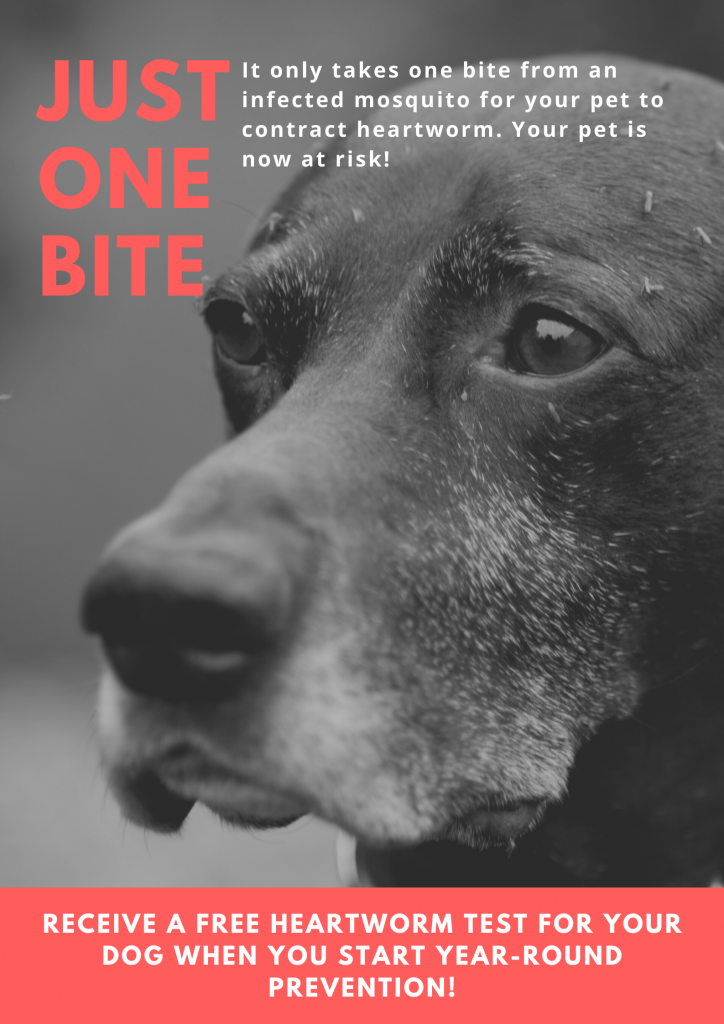
Canine Heartworm Disease: Is My Dog At Risk?

How would you like an alien invading your heart? Think of your poor pet with a giant worm, up to 30cm long when mature, living inside its heart and lungs, causing obstruction, severe damage, illness and, eventually, death.
Heartworm disease is a silent killer of dogs. Thankfully, it can easily be prevented
How is heartworm spread?
Heartworm is spread when mosquitoes feed on infected dogs, picking up heartworm larvae (microfilaria) from their bloodstream, and then deposit them into the skin of another dog. The microfilaria then travel through the tissues and bloodstream of this dog and make their way to the heart, growing into adult worms and producing new microfilaria to circulate in the bloodstream, and so on.
The whole process from the first mosquito bite to adult worms and microfilaria takes 6 – 7 months. Adult worms can survive in the heart and arteries for 5 – 7 years.
Is my dog at risk?
Heartworm is a disease spread by mosquitoes and occurs in any area where mosquitoes breed. Previously, heartworm disease was more prevalent in tropical areas but is now widespread over much of Australia, including the eastern states. Taking your dog to heartworm areas, even for a day, can result in infection
How does heartworm affect my dog?
The adult heartworms cause inflammation of the arteries in the lungs leading to thickening and obstruction of the blood vessels. Interference to blood flow eventually leads to congestive heart failure. Symptoms include:
-Dry cough
-Lack of energy and reluctance to exercise
-Weight loss
-Difficulty breathing
-Distended abdomen (from fluid)
-Death in severe cases
How is heartworm diagnosed and treated?
Your vet diagnoses heartworm by taking a blood sample to look for the heartworm larvae (micofilaria) or checking for antibodies. X-rays may also be taken to confirm the diagnosis or to assess the amount of damage to the dog’s heart and lungs.
Treatment of canine heartworm disease is done in hospital under strict care, as there are some risks involved. If the disease is serious, the damage to the heart and lungs may be permanent. You can see that it would be much better to prevent heartworm disease before it happens.
How do I prevent heartworm disease?
Adult dogs must be blood tested for heartworm before medication is started because these drugs can cause fatal reactions if the dog is already infected. Puppies should be started on preventative medication from 6 weeks of age and do not require a blood test.
There is a once-a-year heartworm preventative available
Ask your vet for advice and remember heartworm prevention is all year round.

